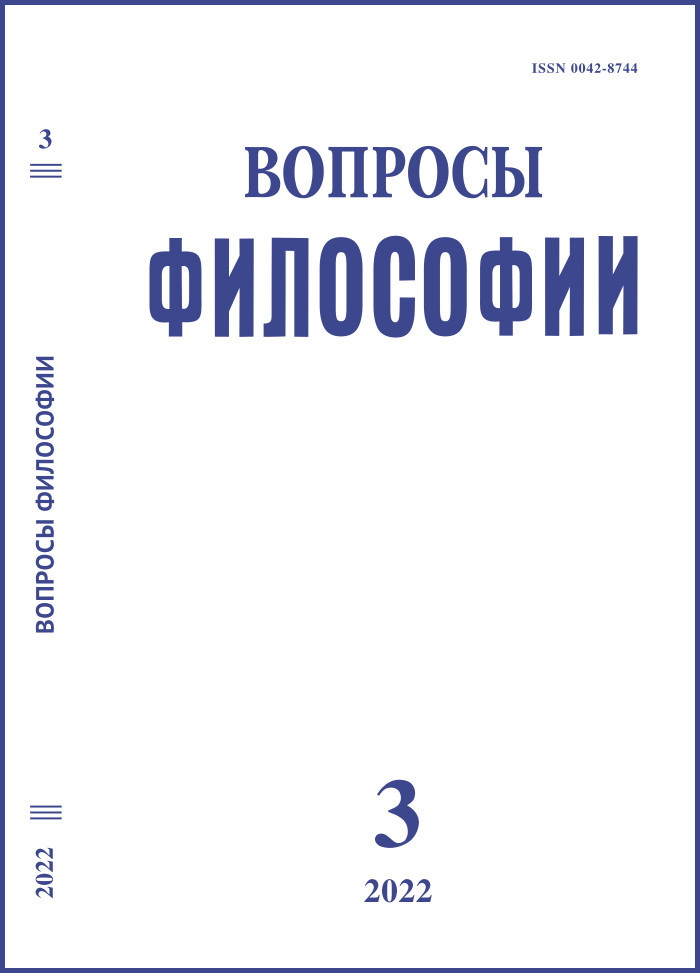Anthropological Crisis as a Theme of Philosophy
DOI:
https://doi.org/10.21146/0042-8744-2022-3-86-92Keywords:
anthropological crisis, philosophical anthropology, anthropology, crisis of modern civilizationAbstract
Modern civilized society is in a state that could quite accurately be designated by the term “crisis” (in both its semantic shades – catastrophic and dynamic-transitional). The scientific literature describes in detail the reasons that involve modern civilization in this state: the increasing use of the environment due to technological progress and, as a result, its perilous change. And accordingly, by pointing to this kind of reasons, a circle of problems has already been outlined. The options for technological solutions outline the way out of the crisis. The purpose of this article is to expand this problem circle. According to the author, what aggravates and distinguishes the current crisis situation, is that modern technologies, among other things, open up the possibility of radically changing the fundamental species characteristics of the person himself. And what is essential in this case, the possibility of such transformations becomes available to the individual: he, at his discretion, is able to transform not only his spiritual but also physical parameters, and therefore, vary the forms of his (equally specific) social being. But to answer the question: “What consequences can this kind of transformation of Homo sapiens lead to?” neither the individual nor the society, at least today, are capable. Meanwhile, in this situation, a person turns into a human problem in himself, i.e., loses himself as an anthropos [Averintsev 2006]. The processes that deform modern civilization acquire the features of an existential “anthropological crisis”. And above all, in this capacity, modern philosophy should comprehend them.
Published
Versions
- 2025-02-06 (2)
- 2022-03-31 (1)

